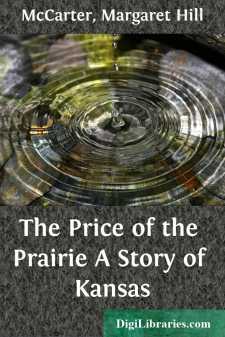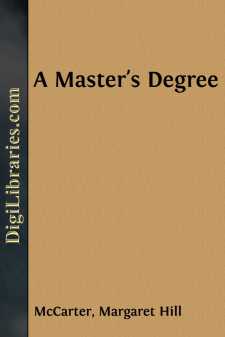Categories
- Antiques & Collectibles 13
- Architecture 36
- Art 48
- Bibles 22
- Biography & Autobiography 813
- Body, Mind & Spirit 142
- Business & Economics 28
- Children's Books 15
- Children's Fiction 12
- Computers 4
- Cooking 94
- Crafts & Hobbies 4
- Drama 346
- Education 46
- Family & Relationships 57
- Fiction 11828
- Games 19
- Gardening 17
- Health & Fitness 34
- History 1377
- House & Home 1
- Humor 147
- Juvenile Fiction 1873
- Juvenile Nonfiction 202
- Language Arts & Disciplines 88
- Law 16
- Literary Collections 686
- Literary Criticism 179
- Mathematics 13
- Medical 41
- Music 40
- Nature 179
- Non-Classifiable 1768
- Performing Arts 7
- Periodicals 1453
- Philosophy 64
- Photography 2
- Poetry 896
- Political Science 203
- Psychology 42
- Reference 154
- Religion 513
- Science 126
- Self-Help 84
- Social Science 81
- Sports & Recreation 34
- Study Aids 3
- Technology & Engineering 59
- Transportation 23
- Travel 463
- True Crime 29
The Price of the Prairie A Story of Kansas
Description:
Excerpt
PROEM
"Nature never did betray the heart that loved her"
I can hear it always—the Call of the Prairie. The passing of sixty Winters has left me a vigorous man, although my hair is as white as the January snowdrift in the draws, and the strenuous events of some of the years have put a tax on my strength. I shall always limp a little in my right foot—that was left out on the plains one freezing night with nothing under it but the earth, and nothing over it but the sky. Still, considering that although the sixty years were spent mainly in that pioneer time when every day in Kansas was its busy day, I am not even beginning to feel old. Neither am I sentimental and inclined to poetry. Life has given me mostly her prose selections for my study.
But this love of the Prairie is a part of my being. All the comedy and tragedy of these sixty years have had them for a setting, and I can no more put them out of my life than the Scotchman can forget the heather, or the Swiss emigrant in the flat green lowland can forget the icy passes of the glacier-polished Alps. Geography is an element of every man's life. The prairies are in the red corpuscles of my blood. Up and down their rippling billows my memory runs. For always I see them,—green and blossom-starred in the Springtime; or drenched with the driving summer deluge that made each draw a brimming torrent; or golden, purple, and silver-rimmed in the glorious Autumn. I have seen them gray in the twilight, still and tenderly verdant at noonday, and cold and frost-wreathed under the white star-beams. I have seen them yield up their rich yellow sheaves of grain, and I have looked upon their dreary wastes marked with the dull black of cold human blood. Plain practical man of affairs that I am, I come back to the blessed prairies for my inspiration as the tartan warmed up the heart of Argyle.
CHAPTER I
SPRINGVALE BY THE NEOSHO
Sweeter to me than the salt sea spray, the fragrance of summer rains;
Nearer my heart than the mighty hills are the wind-swept Kansas plains.
Dearer the sight of a shy wild rose by the road-side's dusty way,
Than all the splendor of poppy-fields ablaze in the sun of May.
Gay as the bold poinsettia is, and the burden of pepper trees,
The sunflower, tawny and gold and brown, is richer to me than these;
And rising ever above the song of the hoarse, insistent sea,
The voice of the prairie calling, calling me.
—ESTHER M. CLARKE.
Whenever I think of these broad Kansas plains I think also of Marjie. I cannot now remember the time when I did not care for her, but the day when O'mie first found it out is as clear to me as yesterday, although that was more than forty years ago. O'mie was the reddest-haired, best-hearted boy that ever laughed in the face of Fortune and made friends with Fate against the hardest odds. His real name was O'Meara, Thomas O'Meara, but we forgot that years ago.
"If O'mie were set down in the middle of the Sahara Desert," my Aunt Candace used to say, "there'd be an oasis a mile across by the next day noon, with never failing water and green trees right in the middle of it, and O'mie sitting under them drinking the water like it was Irish rum."
O'mie would always grin at this saying and reply that, "by the nixt day noon follerin' that, the rascally gover'mint at Washin'ton would come along an' kick him out into the rid san', claimin' that that particular oasis was an Injun riservation, specially craayted by Providence fur the dirthy Osages,—the bastes!"
O'mie hated the Indians, but he was a friend to all the rest of mankind. Indeed if it had not been for him I should not have had that limp in my right foot, for both of my feet would have been mouldering these many years under the curly mesquite of the Southwest plains. But that comes later.
We were all out on the prairie hunting for our cows that evening—the one when O'mie guessed my secret. Marjie's pony was heading straight to the west, flying over the ground. The big red sun was slipping down a flame-wreathed sky, touching with fire the ragged pennons of a blue-black storm cloud hanging sullenly to the northward, and making an indescribable splendor in the far southwest.
Riding hard after Marjie, coming at an angle from the bluff above the draw, was an Osage Indian, huge as a giant, and frenzied with whiskey. I must have turned a white despairing face toward my comrades, and I was glad afterward that I was against the background of that flaming sunset so that my features were in the shadow....





